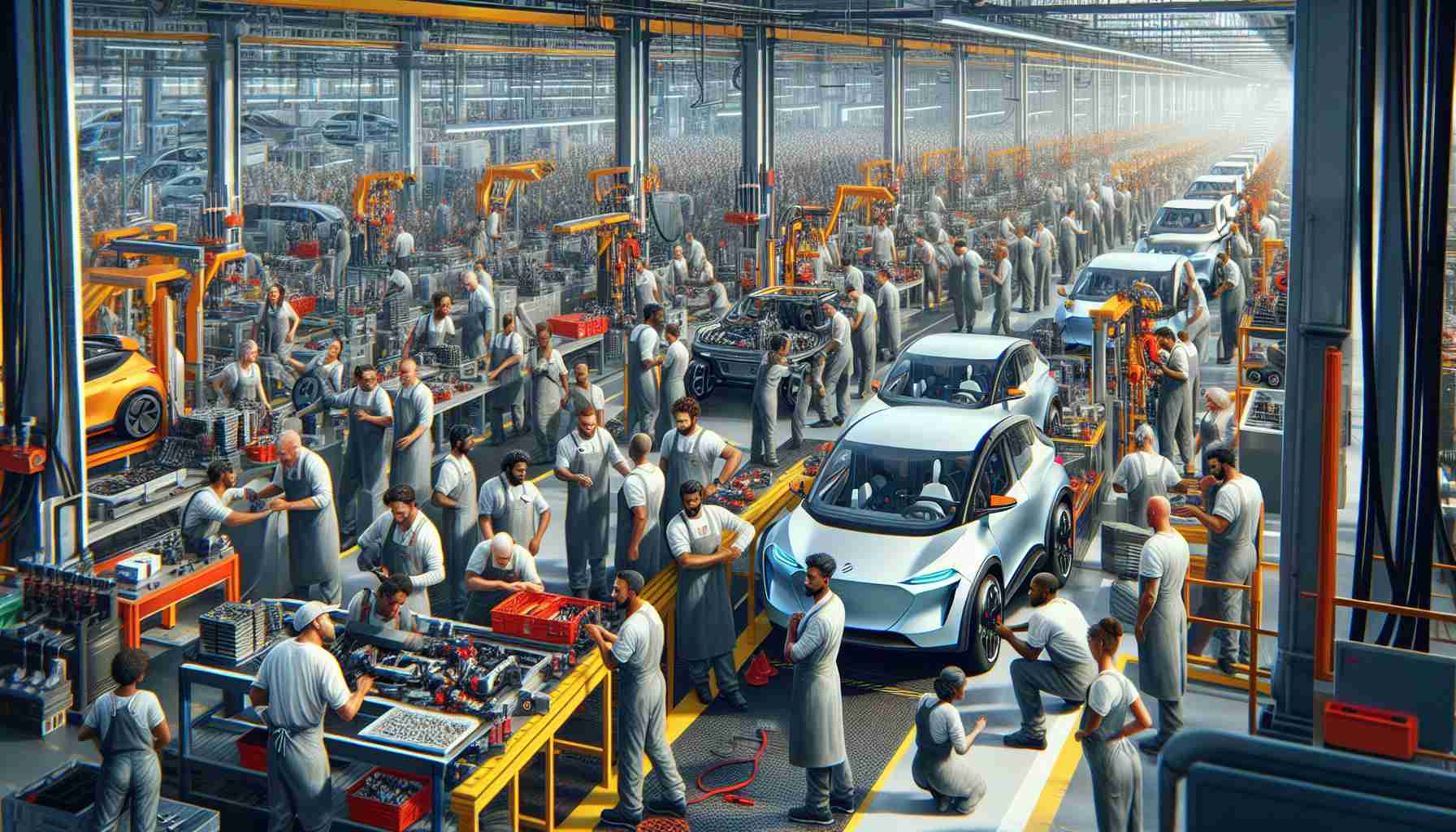Tata Motors, the largest player in India’s electric vehicle market, is anticipating fierce competition as major brands like Maruti Suzuki, Hyundai, BYD, and Mahindra & Mahindra prepare to unveil their latest models at the Bharat Mobility Global Expo this Friday. Despite the influx of new entrants, Tata Motors views this shift positively, suggesting it will enhance consumer choice and bolster the EV ecosystem. The company has showcased its highly awaited Sierra EV, a testament to its commitment to innovation.
Shailesh Chandra, Managing Director of Tata Motors Passenger Vehicles and Tata Motors Electric Mobility, expressed optimism about the timing of this competition. He noted that while it may have arrived later than expected, the good news is that electric vehicle prices are converging with those of traditional internal combustion engine (ICE) vehicles due to decreasing costs overall.
Currently holding over 60% of the domestic EV market, Tata Motors envisions the market splitting into two main categories: city-specific EVs and higher-range, versatile EVs. With an increasing focus on vehicles priced above Rs 18-20 lakh, city-centric electric options remain scarce.
Chandra also commented on the recent PM e-Drive scheme, indicating that excluding fleet operators from subsidies may slow EV adoption. He reflected that if the fleet segment had been included, it could have accelerated the transition to electric vehicles dramatically.
Implications of Tata Motors’ Dominance in the EV Market
As Tata Motors fortifies its position as India’s leader in the electric vehicle sector, the broader implications of this burgeoning industry extend far beyond the automotive realm. The surge in electric vehicle (EV) adoption represents a pivotal shift in societal attitudes towards sustainability and innovation. With increasing urbanization and growing environmental concerns, consumer acceptance of EVs is not just a trend but a cultural movement towards greener living.
The global economy also stands to benefit significantly from the EV boom. As major players enter the market, competition will likely spur technological advancements and reduce manufacturing costs, potentially leading to a reduction in vehicle prices. This democratization of access to EVs can catalyze job creation in emerging sectors and bolster supply chains dedicated to clean energy. Moreover, the convergence of EV prices with those of traditional vehicles suggests a paradigm shift—where the environmental choices become economically feasible for the average consumer.
Looking ahead, the environmental implications are profound. The transition from internal combustion engines to electric vehicles could drastically reduce air pollution in urban areas, enhancing public health outcomes. Additionally, this shift heralds a future where renewable energy sources can power transportation, steering societies towards decreased reliance on fossil fuels.
In a landscape marked by rapid technological evolution and shifting consumer preferences, Tata Motors and its competitors will play crucial roles in shaping the future of mobility, with long-term significance that transcends cars alone. This is a decisive moment in redefining energy consumption, urban planning, and global sustainability practices.
Battle of the Titans: Tata Motors Faces New EV Rivals at Bharat Mobility Global Expo
Overview of the EV Market Trends in India
As Tata Motors prepares for the Bharat Mobility Global Expo, they acknowledge the rising competition in the electric vehicle (EV) sector from established brands like Maruti Suzuki, Hyundai, BYD, and Mahindra & Mahindra. This anticipated rivalry is seen as beneficial for the market, enhancing consumer choice and fostering the growth of the EV ecosystem.
Market Analysis
Currently, Tata Motors dominates India’s EV landscape, commanding over 60% market share. The company’s strategy anticipates a bifurcation in the EV market into two key segments:
1. City-Specific EVs: Tailored for urban commuting, these vehicles are expected to cater to daily transport needs.
2. Higher-Range, Versatile EVs: Aimed at consumers looking for longer-range capabilities, these vehicles offer versatility for various driving conditions.
With an increasing number of consumers looking for vehicles priced above Rs 18-20 lakh, there remains a gap in city-centric electric options, indicating potential for growth in this area.
Recent Innovations and Model Launches
Tata Motors recently showcased the highly awaited Sierra EV, reflecting its commitment to future mobility and innovative design. This model is expected to play a crucial role in maintaining Tata’s competitive edge amidst the new entrants in the market.
Pricing Trends and Consumer Insights
With the price convergence between EVs and traditional internal combustion engines, Shailesh Chandra, the Managing Director of Tata Motors Passenger Vehicles and Tata Motors Electric Mobility, highlights that this trend could accelerate EV adoption significantly. This price alignment is further supported by decreasing production costs in the EV sector.
Challenges and Controversies
Despite the positive outlook, Chandra pointed out challenges posed by the recent PM e-Drive scheme, particularly the exclusion of fleet operators from subsidies. This decision could impede the rate of EV adoption, as fleet operators are pivotal in driving demand for electric vehicles due to their scale.
Future Predictions
The entry of new competitors and the evolving landscape of the EV market could lead to revolutionary changes in consumer preferences and vehicle technologies. Tata Motors anticipates that this heightened competition will not only spur innovation but also lead to better pricing and enhanced features across all EV offerings.
For more information on Tata Motors and their latest developments, visit Tata Motors.
Conclusion
As Tata Motors gears up to face stiff competition at the Bharat Mobility Global Expo, the potential for consumer choice and innovation in the Indian electric vehicle market is at an all-time high. With key players entering the fray and emerging consumer trends, the future of electric mobility in India looks promising yet challenging.













